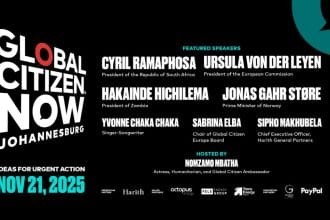An In-depth Look at the Cost of Living in South Africa
Due to the everyday rising cost of living, comfortable living in South Africa in 2024 would need proper financial planning. From housing to transport, food, and education, the cost of living in South Africa make understanding the required income to sustain a decent standard of living very important to residents and newcomers.
Housing Costs
It is one of the biggest expense items for South African households. The average rent price for a one-bedroom apartment in city centers such as Cape Town and Johannesburg falls between R7,000 to R12,000 per month. For those willing to buy, property prices in those urban centers could range above R1 million, with monthly bond repayments pegged at around R9 650 on a 20-year mortgage at an interest rate of 10%.

Transport
Depending on the type of transport you use, there are varied differences between the costs. Public transport, such as the Gautrain, varies from R60 to R80 a trip from Johannesburg to Pretoria. If you use your own drive, you have first to own a car with all the expenses attached, summing it up: fuel, insurance, and maintenance. If the price of petrol stands at about R23 a liter, then 20km a day will cost approximately R1,500 on just fuel.
Food and Groceries
Grocery prices have been increasing. According to News24, the average monthly grocery bill is now within the R6 000 to R9 000 range for a family of four, which basically only entails bread, milk, meat, and some vegetables.
Utilities and Internet
It will also include utilities such as electricity, water, and waste management, which will cost around R1 500 to R2 500 per month. In addition, reliable internet is needed. Uncapped fibre internet packages start from R700 a month at least.

Education
The next vital factor to consider for families with children would be education expenses. Public schools are comparatively cheap, while you will pay extra in uniforms, books, and extracurricular activities. A private school is always much more expensive—the annual tuition fees could range from R30,000 to R120,000 per child.
Healthcare
Another important factor would be access to good healthcare. Most South Africans subsidize their income with medical aid schemes to ensure good health coverage. Such premiums may cost any amount between R1,500 and R4,000 a month per individual for different medical aid plans, contingent on the level of coverage.
More Cost of Living Estimates
The general overview presented in the 2024 South Africa Living Wage Report is an estimated R6,570 per month for a general single adult and approximately R18,040 for a family of four. The above figure’s calculations entertain a price level that represents the minimum the worker and his family need to earn in order to meet their basic needs, such as housing, food, transportation, and other miscellaneous expenditures.

Total Monthly Costs
Adding up these averages, the cost of living for a single individual living in Johannesburg or Cape Town would require approximately R15 000 to R30 000 monthly in order to be able to afford all the basic needs comfortably. For a family of four, the number goes up to roughly R30 000 to R50 000 per month, as these expenses on housing, food, and education increase.
Conclusion
In 2024, the overall cost of living in South Africa will equate to living within one’s appropriation of earnings versus expenditure. Even though individual lifestyles and needs may differ, the knowledge of these average costs puts individuals and families in a better position to budget accordingly in an effort to maintain comfortable living standards.
Also read: Is the VW Golf GTI 8.5 Worth a Million-Rand?: A Comprehensive Analysis













